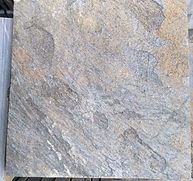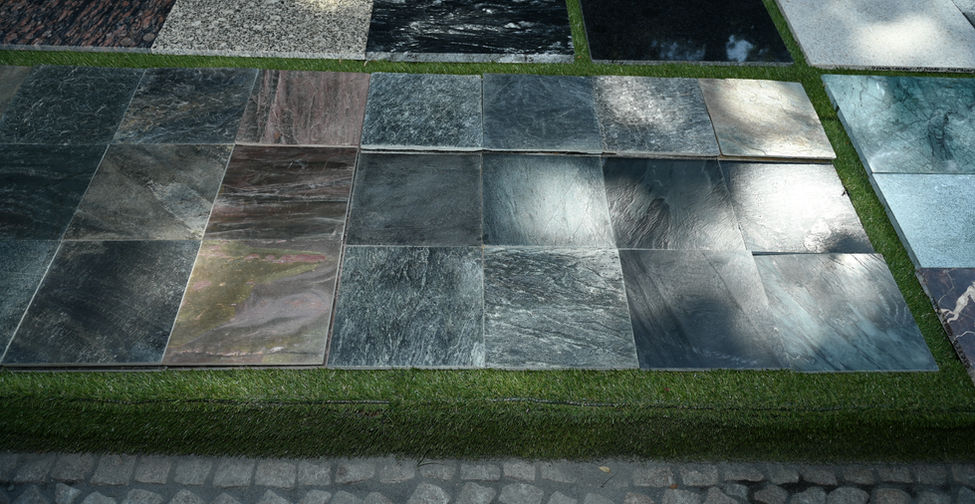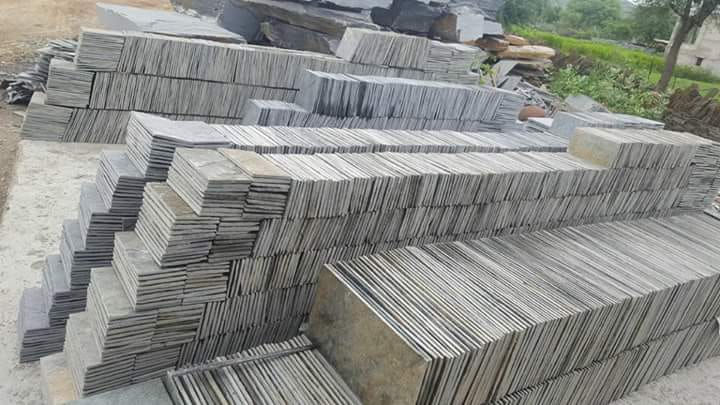
Slatestone as floor
Slate has a naturally rough surface, is somewhat greasy and has few pores.
Slate floor tiles are not sensitive to stains and therefore very easy to maintain.
You can usually mop up scratches from chair legs.

Slatestone and finishes
Slate comes into its own best in a natural cleft finish.
But a Honed finish is also possible. This creates a slight reflection on the smooth, matt surface,
without visible grooves.

Slatestone installation
An uncalibrated natural stone is placed with a mortar bed or with a thick bed adhesive (1.5 to 2.5 cm thick).
A thick-bed adhesive for natural stone on screed is the best bond. However, calculate in advance what the glue price tag is! Remember, traditional placement holds just as well and is only a fraction of the cost of gluing!
Slate is a layered stone: as soon as a layer breaks through, the slate comes loose or even breaks.
It has nothing to do with the thickness : even a slate of 7cm thickness can break in its layers.
Some slates are already broken in the crates!
The slate must therefore be tapped well during installation. This is because the bad slates have to break.
Better during installation than a few days or years later!
Slates with grooved laying side give the impression of being sturdier, but that is an optical illusion.
On the side of the slate one can see the layers and sometimes predict whether those layers will peel off or not.
The floorer may then have to split the slates before installing.



